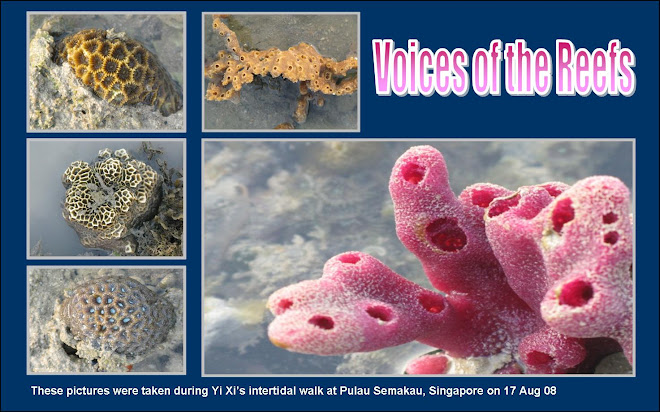I like this twisted nudibranch, (Chromodoris Elizabethina), on the reef face off Heron Island most. It is very bright and colourful.
 About half of the 300 soft corals found are thought to be new discoveries, although they will only be given names and classified formally once the scientists have compared them against existing species. Unlike their hard-bodied cousins, soft corals do not build reefs but are nevertheless considered vital for the marine environment. These colourful animals can dominate some regions of the sea, covering up to 25 per cent of the ocean floor.
About half of the 300 soft corals found are thought to be new discoveries, although they will only be given names and classified formally once the scientists have compared them against existing species. Unlike their hard-bodied cousins, soft corals do not build reefs but are nevertheless considered vital for the marine environment. These colourful animals can dominate some regions of the sea, covering up to 25 per cent of the ocean floor.The latest discovery is a result of a four-year project centred on the extensive coral reefs of western and north-western Australia and is part of a larger effort to take a census of all marine life in the world, due to be finished in 2010. When complete, the census will be used as a "baseline" to try to quantify the rate at which species are becoming extinct in the marine environment. Coral reefs are considered to be the rainforests of the sea because of their rich biodiversity. It is estimated that something between one million and nine million species of marine creatures live in and around coral reefs, but scientists have little idea of the precise numbers.
Here is a dendronepthya soft coral

ans a colonial salp jellyfish
 and a ctenophore or comb jellyfish
and a ctenophore or comb jellyfish You can see more pictures on http://www.guardian.co.uk/environment/gallery/2008/sep/18/wildlife.australia?picture=337754721
You can see more pictures on http://www.guardian.co.uk/environment/gallery/2008/sep/18/wildlife.australia?picture=337754721


 You can read more about coral reefs in Singapore at
You can read more about coral reefs in Singapore at 




